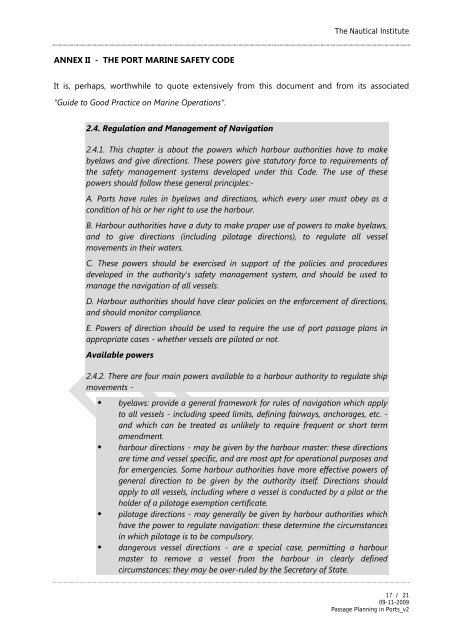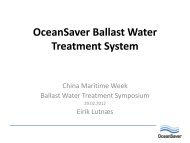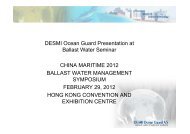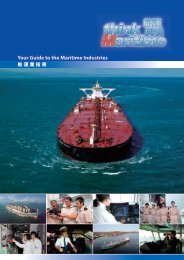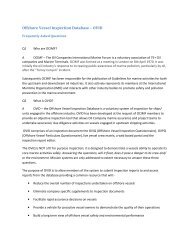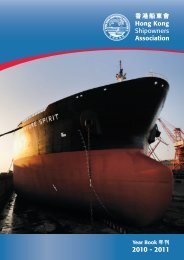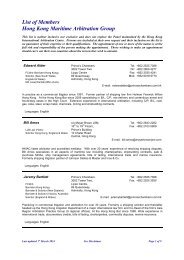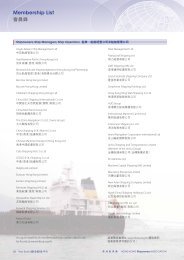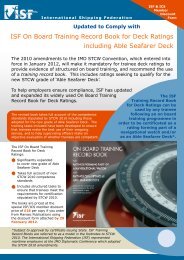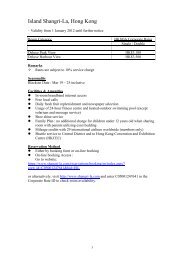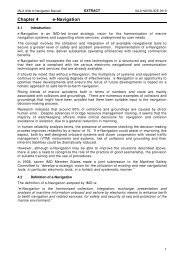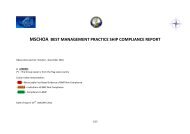PASSAGE PLANNING IN PORTS - A NAUTICAL INSTITUTE GUIDE ...
PASSAGE PLANNING IN PORTS - A NAUTICAL INSTITUTE GUIDE ...
PASSAGE PLANNING IN PORTS - A NAUTICAL INSTITUTE GUIDE ...
Create successful ePaper yourself
Turn your PDF publications into a flip-book with our unique Google optimized e-Paper software.
The Nautical InstituteANNEX II - THE PORT MAR<strong>IN</strong>E SAFETY CODEIt is, perhaps, worthwhile to quote extensively from this document and from its associated“Guide to Good Practice on Marine Operations”.2.4. Regulation and Management of Navigation2.4.1. This chapter is about the powers which harbour authorities have to makebyelaws and give directions. These powers give statutory force to requirements ofthe safety management systems developed under this Code. The use of thesepowers should follow these general principles:-A. Ports have rules in byelaws and directions, which every user must obey as acondition of his or her right to use the harbour.B. Harbour authorities have a duty to make proper use of powers to make byelaws,and to give directions (including pilotage directions), to regulate all vesselmovements in their waters.C. These powers should be exercised in support of the policies and proceduresdeveloped in the authority's safety management system, and should be used tomanage the navigation of all vessels.D. Harbour authorities should have clear policies on the enforcement of directions,and should monitor compliance.E. Powers of direction should be used to require the use of port passage plans inappropriate cases - whether vessels are piloted or not.Available powers2.4.2. There are four main powers available to a harbour authority to regulate shipmovements -• byelaws: provide a general framework for rules of navigation which applyto all vessels - including speed limits, defining fairways, anchorages, etc. -and which can be treated as unlikely to require frequent or short termamendment.• harbour directions - may be given by the harbour master: these directionsare time and vessel specific, and are most apt for operational purposes andfor emergencies. Some harbour authorities have more effective powers ofgeneral direction to be given by the authority itself. Directions shouldapply to all vessels, including where a vessel is conducted by a pilot or theholder of a pilotage exemption certificate.• pilotage directions - may generally be given by harbour authorities whichhave the power to regulate navigation: these determine the circumstancesin which pilotage is to be compulsory.• dangerous vessel directions - are a special case, permitting a harbourmaster to remove a vessel from the harbour in clearly definedcircumstances: they may be over-ruled by the Secretary of State.17 / 2109-11-2009Passage Planning in Ports_v2


